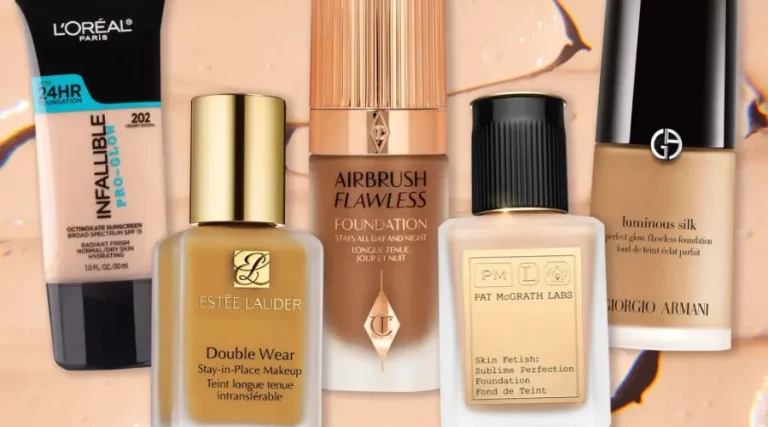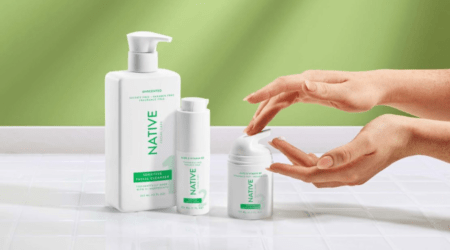Oily skin can be a challenge to manage. Finding the perfect foundation for your skin type can seem like a daunting task. But don’t despair! With this Ultimate Guide to Finding the Right Foundation for Oily Skin, you’ll learn how to identify the best foundation for your skin type, what ingredients to look for, and how to apply it for a flawless finish. Whether you have sensitive skin, are prone to breakouts, or just want to keep your skin looking its best, this guide will help you find the perfect foundation to keep your skin looking healthy and radiant. So don’t wait – start your journey to beautiful skin today!
Benefits of using foundation for oily skin
There are many benefits to using foundation for oily skin. It can help control excess oil, even out skin tone, cover blemishes, even out skin texture, and create a flawless base for additional makeup. But perhaps the greatest benefit of foundation for oily skin is that it can extend the life of your skin care routine. Using foundation can help keep your skin clean and healthy by preventing excess oil from getting onto your skin and clogging pores. This keeps your skin from getting oily faster than if you didn’t use foundation, which means you get longer use out of the products you’re already spending money on. Another major benefit of foundation for oily skin is that it can extend your makeup routine. Using foundation over a moisturizer or primer can help lock in the products, keeping them from getting washed off your skin before they have a chance to do their job. This also reduces the time it takes to get ready in the morning as well as the amount of products you need to use.
Identifying your skin type
This might sound like an obvious step, but it’s worth noting that not everyone who has oily skin has the same needs when it comes to foundation. Depending on your skin type, you may want to look for an oil-free foundation, water-resistant foundation, or a foundation that includes oil-absorbing ingredients. Skin type is determined by a number of factors, including the amount of oil produced by your pores, the rate of cellular turnover, sensitivity, and the amount of water content in your skin. So when shopping for a foundation for oily skin, be sure to read the ingredients, know your skin type, and choose the best formula for your needs. With that being said, here are the main types of oily skin: Oily skin, normal-to-oily skin, and dry-to-oily skin. Oily skin – The most common type of oily skin is caused by overactive sebaceous glands. It is characterized by large pores and an oily sheen. Normal-to-oily skin – This skin type is a result of a combination of genetic factors, environmental influences, diet, and lifestyle. Dry-to-oily skin – This type of skin occurs when the sebaceous glands become overactive as a result of hormonal changes, diet, genetics, and lifestyle.
What ingredients to look for in a foundation for oily skin
When shopping for a foundation for oily skin, it is important to look for specific ingredients in the formula. This will ensure that you find a foundation that controls excess oil while providing the coverage you need. Here are some of the best ingredients to look for in a foundation for oily skin. Coconut Oil – Coconut oil is a popular ingredient in many beauty products, but why exactly is it so popular? The answer is simple: coconut oil is known for being an incredible natural moisturizer that can both hydrate and soothe the skin. This is why coconut oil makes for such a great ingredient for oily skin — it helps control oil and provides the skin with a natural source of moisture! Vitamin E – Vitamin E is a powerful antioxidant that can help protect your skin from a wide range of environmental factors. It also helps reduce the oiliness of your skin, making it a great option for oily skin! Glycerin – Glycerin is a natural humectant that can be found in many beauty products. It helps attract and retain moisture in the skin, making it a great choice for oily skin.
How to test foundation for the perfect match
When shopping for the perfect foundation for your skin type, it can be helpful to test out a few different options. This will help you avoid buying a foundation that doesn’t match your skin tone. For example, you can hold the foundation up to your face and see what the colour looks like. There are also colour-selecting apps that can help you find the perfect match. With that being said, there are a few things to keep in mind when testing out foundation for the perfect match. First, make sure to thoroughly cleanse your skin before testing out different foundations. This will ensure that you get an accurate reading of the colour once applied. You should also take into account factors like how much coverage you want and how long you will be wearing the foundation.
Different types of foundations for oily skin
There are many different types of foundations for oily skin. The best type of foundation will depend on your skin type and the coverage you need. If you have oily skin, you may benefit from an oil-free foundation. This type of foundation is designed to help control oil, keep your skin looking matte, and provide a lightweight coverage. If you prefer a little more coverage, you may want to consider a water-resistant foundation. This type of foundation is designed to stay on your skin longer, even in humid conditions. It is also available in a wide variety of coverage options. A creamy foundation is another great choice for oily skin. This type of foundation offers a heavier coverage and can help minimize the appearance of pores. You can also consider a pressed powder foundation for oily skin. This type of foundation is designed to last for long periods of time and offer a heavier coverage.
Application tips for a flawless finish
Applying foundation for oily skin can seem like a daunting task. But with these few easy tips, you can make sure you don’t mess up your makeup and end up with a streaky, uneven finish. First, make sure you have the right tools and products on hand. You will want to use a high-quality beauty sponge, a makeup brush, or a foundation sponge to apply the foundation to your face. You will also want to make sure that your hands are clean and that you have a clean applicator as well. Next you will want to apply the foundation to your cheekbones, forehead, nose, and chin first. From there, blend the foundation into the rest of your face with your sponge or brush. A helpful tip is to look at yourself from an upside-down perspective in the mirror. This will allow you to see how the foundation is blending into your neck and jawline.
Makeup products to avoid for oily skin
The best way to keep your makeup from looking too oily is to avoid products that will make your face look too shiny. Here are a few products you will want to avoid if you have oily skin. Foundations with heavy glitter or shimmer – Heavy glitter or shimmer in foundations can make your face look shiny, so it is best to stay away from those types of foundations if you have oily skin. Cream blush – Cream blush is great for oily skin because it is lightweight and easy to blend. However, if you have oily skin, you will want to stay away from cream blush that has a lot of shimmer in it. Bronzers – Bronzers are another product you will want to avoid if you have oily skin. While bronzers can add dimension to your face, they can also make your face look too shiny. Powders – Powders are another great option for oily skin. They are lightweight, easy to blend, and won’t make your face look too shiny.
Makeup tips to keep oily skin looking healthy and radiant
Here are a few makeup tips to keep your skin looking healthy and radiant even if you have oily skin. Stay away from heavy foundations – If you have oily skin, you will want to stay away from heavy foundations. These types of foundations can make your face look too shiny, which isn’t attractive. Wear a primer – A primer is a great product to keep your makeup looking fresh and healthy even if you have oily skin. Stay away from heavy blush and eye shadows – Heavy blush and eye shadows can make your face look too shiny, so it is best to stay away from those types of products if you have oily skin. Wear minimal eye makeup – If you have oily skin, you will want to keep your eye makeup to a minimum. Avoid wearing too much eyeliner, eye shadow, and mascara



